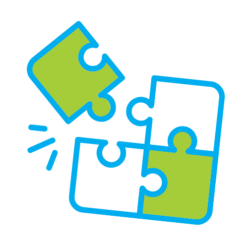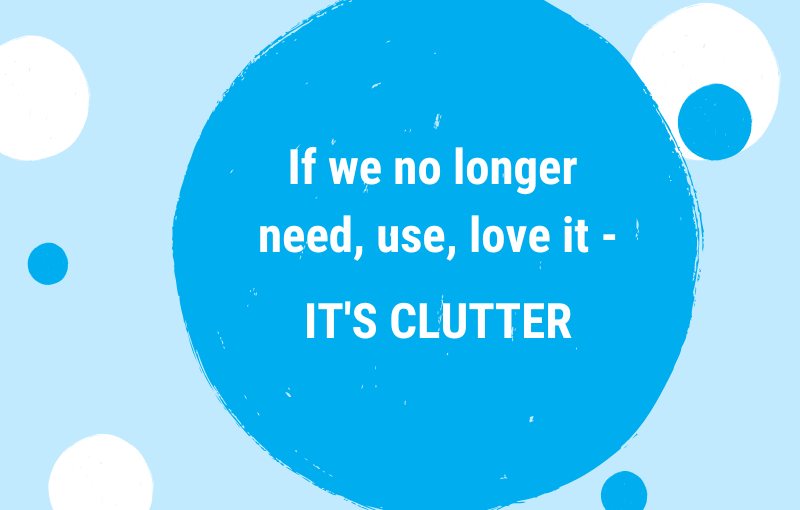If something has no longer value for us, it’s clutter.
And it doesn’t matter how much we paid for it.
Sometimes we hold on to something we don’t need, use, or love any longer, just because we have spent money on it.
We believe that we are obliged to continue valuing (= keeping) it because of the money we once invested into getting it.
However, money that has been spent is gone – it’s ‘sunk cost’, it’s gone as soon as we spend it.
Keeping something that no longer serves us but once cost us money means – in our mind – we still ‘own’ it and that makes us feel like we are somehow still having the money’s worth in our pocket.
But that’s not the case, of course, the money is gone.
Any unused item holds no value at all any longer: it holds no monetary value and no practical value – if we don’t use it, it’s useless, at least to us.
And then feelings of guilt tend to creep up. We look at that item, we know that the money is gone, and we know that it is useless to us, but it still sits there and stares at us – it makes us feel miserable.
However, it might be able to make someone else happy, it might have huge value for someone else, someone who needs it, who would use or love it.
As we release the item, we should also release any feelings of guilt, shame, or anger that go along with it. There is no upside in holding on to those negative emotions.
EXERCISE 1
-
- Walk around your home and pick up some of the things that you haven’t used for ages. Or that you haven’t used at all.
- Take each of the things in your hands and ask yourself: ‘Does this have still any value to me?’ Be absolutely honest!
- Make a decision: To keep or not to keep?
- If you decide to keep it, assign it a home, honour it by giving it the space and the use that the things you really want to have deserve.
- If you decide not to keep it but want to sell it because you believe it has monetary value for someone else: Go out and find that person. Enjoy the money you get.
- If you decide not to keep it and you can’t / don’t want to sell it: Donate it.
- If you decide not to keep it, not to sell it and not do donate it (because there is definitely nobody who wants it): Say goodbye and put it in the rubbish or recycle bin.
- And then enjoy the things you kept – because you truly need, use, or love them.
While going through the process of letting go and analysing why you bought the item, you can gain valuable insights from your sunk cost purchases.
EXERCISE 2
Asking ourselves some uncomfortable questions helps us understand the reasons behind the purchase and this new awareness will make it easier to avoid similar mistakes in the future.
You can you learn a lot about yourself from your answers to questions like these:
-
- Was it an impulse buy? Did I acquire it without consideration or need? Why?
- Did I succumb to pressure from a salesperson, my family, or friends?
- What else could have caused me to buy it?
Any insights?
What did you learn from these exercises?
Are you more aware of the belongings that you value – because you need, use, love them?
And more aware of the things that no longer have value for you?
Any decluttering plans?
HOW CAN I HELP YOU?
Are you tired?
Tired of trying to (re)organise the various areas of your life entirely on your own?
Fortunately, you don’t have to figure it out all by yourself.
We can do it together.
You can decide to get my support, advice, and guidance – and achieve the desired changes in your life so much faster and easier.

